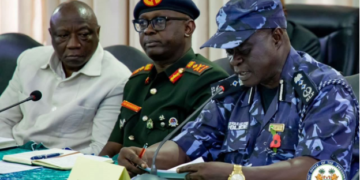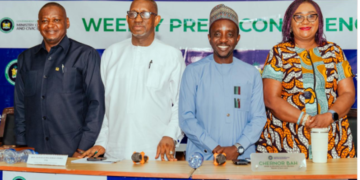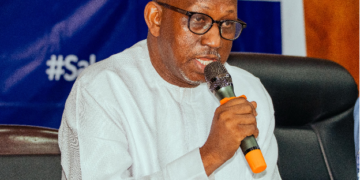The Anti-Corruption Commission (ACC) Public Education Unit has conducted customized meetings with teachers and educational authorities of the Government Model and Government Rokel Secondary Schools in Freetown to convey anti-corruption messages. The two meetings took place on the campuses of the schools on 22nd and 23rd October 2025 respectively.
The engagements aimed to deepen the teachers’ understanding of the ACC’s mandate and to admonish them to maintain their vital role as ambassadors of integrity in promoting ethical values and accountability within the school system.
Head of Public Education Unit, Christiana Feima Jusu, addressed corruption issues within the educational sector, emphasizing that teachers play a vital role in shaping the values of pupils and instilling integrity in them.
She outlined several forms of academic and examination malpractices and their corresponding penalties outlined in the Anti-Corruption Act 2008 as amended in 2019, urging teachers to actively support the fight against corruption. “Examples of examination malpractices include the creation of unauthorized special rooms for pupils to take public exams, sex for grades, cash for grades, payment for assignment, and many more,” she said. She informed her audiences of the several malpractice-related cases involving examiners, invigilators and teachers investigated and prosecuted by the ACC in the recent past.
“These offences are systemically hindering development in our society, and therefore the Commission is soliciting the support of teachers to kindly join the fight against them,” she concluded.
Public Education Officer, Yangie Deborah Sesay, said that the engagements form part of the Commission’s continuous public education drive to strengthen integrity systems and foster a culture of transparency in the education sector. She emphasized that such discussions help school authorities and teachers identify corrupt practices, promote transparency, utilize report mechanisms, and integrate integrity principles in school operations.
Delivering a brief presentation on the operations of the Commission, Public Education Officer, Martina George, said that the ACC was established as an independent institution to lead the fight against corruption in Sierra Leone. In order to achieve its mandate, she said, the Commission has key departments such as Public Education and External Outreach, Prevention, Investigations, Prosecution, the National Anti-Corruption Strategy Secretariat, and Asset Declaration.
She noted that these departments work to raise awareness, identify corruption risks in pubic offices, and enforce anti-corruption laws. She said that integrity in schools is vital to building a culture of honesty and responsibility, and that the ACC has been extending similar engagements to other schools to strengthen anti-corruption practices nationwide.
Public Education Officer, Shaka Kamara, emphasized that corruption and weak systems lead to economic loss, reduce investment opportunities, erode public trust and can lead to poor service delivery. In the education sector, he noted, lack of transparent procurement processes and poor oversight of examinations contribute to corruption and affect the country’s reputation internationally. He therefore advised teachers to refrain from partaking in corrupt- related practices, failing which they will face the full force of the law.
At the Government Model Senior Secondary School, principal of the school, Abass Macca Leigh, welcomed the ACC team and joined the teachers to acknowledge the importance of such engagements. Principal of the Government Rokel Junior Secondary School Samuel Turay called for regular engagements to sustain integrity efforts in schools.

























